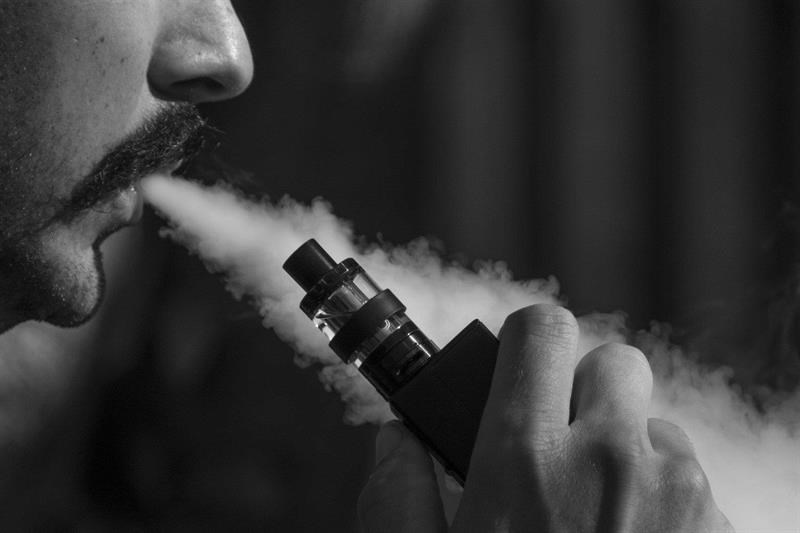E-cigarettes more effective than counselling alone for smoking cessation
Published: 31/03/2020
A new study suggests those who use e-cigarettes containing nicotine along with smoking cessation advice are more likely to quit than those only counselled.
However, researchers cautioned that because the health effects of e-cigarettes are unknown, and they should not be used for any purpose other than smoking cessation.
Mark J. Eisenberg, MD, MPH, a cardiologist at the Jewish General Hospital, professor of medicine at McGill University and the study's lead author, commented: 'These findings show that nicotine e-cigarettes are effective for smoking cessation in the short term. Vaping with counselling is more effective than counselling alone, although it's not a magic bullet for smoking cessation.'Eisenberg said that there is evidence that some e-cigarette users try vaping to cut down on smoking, though only a few clinical trials have assessed the use of e-cigarettes as a smoking cessation tool, with somewhat mixed results.
Further research is needed to elucidate potential health impacts of vaping, but Eisenberg said that they should be avoided by youths and anyone who does not smoke.
The new trial was designed to reflect the real-world conditions lifelong smokers face when attempting to quit. Researchers enrolled 376 participants at 17 sites in Canada. Participants were an average of 53 years old, had smoked for an average of 35 years and smoked an average of 21 cigarettes a day before the study. All participants were motivated to quit. Ninety-one percent had previously attempted to quit but failed, and the majority had previously tried smoking cessation medications or behavioral therapy without success.
One-third of the participants were assigned to receive e-cigarettes containing nicotine, one-third received e-cigarettes without nicotine and one-third did not receive an e-cigarette. All participants received about 100 minutes of counseling over the course of the 12 weeks that included guidance on quitting smoking. Those receiving e-cigarettes were instructed to vape as much as they felt they needed.
Participants reported their progress via three phone calls and two clinic visits during the 12-week treatment period. At clinic visits, participants underwent a breath test for carbon monoxide to verify whether or not they had smoked. At 12 weeks, those who reported not smoking a cigarette (even one puff) in the past week, and passed the breath test, were counted as having quit. For those who did not quit, researchers considered whether or not participants had reduced the total number of cigarettes smoked per day compared to the number they were smoking at the start of the study.
Eisenberg said that the quit rates among e-cigarette users were relatively high in the broader context of smoking cessation research, especially given that participants were heavy smokers who had used tobacco for years.
'While these are not clinical outcomes like death or lung cancer rates, the results are still quite impressive,' he said.
Compared to baseline smoking rates of 21 cigarettes per day, participants who received nicotine e-cigarettes reduced their daily cigarette consumption by 13 cigarettes per day compared to 11 among participants receiving non-nicotine e-cigarettes and seven among those receiving counseling alone.
The study saw few adverse events. One participant assigned to receive nicotine-containing e-cigarettes experienced an exacerbation of chronic obstructive pulmonary disease, though it is unclear whether this was attributable to vaping.
'We desperately need information on whether e-cigarettes are effective for smoking cessation, but [we] also [need] safety data, as well,' Eisenberg said. He suggested it may be wise to limit access to e-cigarettes to people who are actively attempting to quit smoking under a physician's guidance.
Researchers will continue to collect data for one year, with the last follow-up to be completed in September 2020. While e-cigarettes appear to be effective for smoking cessation in the short term, the one-year follow-up will show whether these effects persist over time.
Image link: https://www.flickr.com/photos/157551927@N08/25143234568
Link to: https://www.blacknote.com/e-juice/
Author: Julie Bissett

.jpg?width=300&height=200&scale=canvas)










.jpg?width=150&height=100&scale=canvas)
